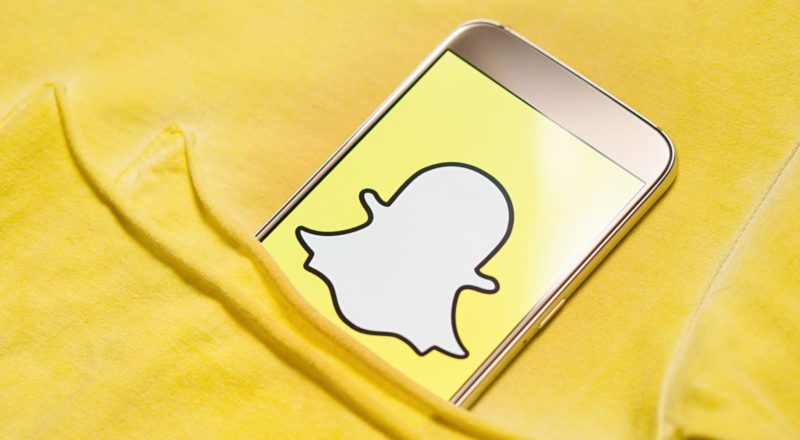Looking to create exciting events? You’re in the right era!
The Internet has made all kinds of changes to event organising. With one click, event goers can learn a lot about upcoming shindigs.
It’s safe to say that things have moved on since newsboys shouted on busy streets. Personally, we don’t miss the old ways.
However, digital doesn’t mean simpler. How can event organisers select the right sites for their needs? Not all event booking websites are created equal. Every good site has a set of features aimed at specific event organisers.
To find the right event booking website for your upcoming events, you should know what to focus on. We explore 6 key aspects of event booking websites to help you find the most suitable one.
Billetto is a ticketing platform that helps you manage, promote, and host events. Set up an event page and start selling tickets in 5 minutes.
CREATE YOUR EVENT >>
1. Ticket buyer features
You must first think of the people buying your tickets. What features does the event booking website offer them? How easy is it to find and register for events? Give some thought to the following.
Site audience
Who is your audience? Let’s say you will be organising musical events like concerts. In that case, you’ll want an event booking website that works mainly in the music arena.
Or maybe you will be organising diverse events. If so, a specialised event booking website is probably not your best bet. Look for something a little more general.

Event recommendations
Some sites feature event recommendations for more daring event goers. (“The site said it was a good idea, so here we go…“) These can appeal to users who enjoy trying new things. Or maybe folks who like a bit of guidance.
Organising an event for a popular band? You’ll definitely want your concert popping up on the front page. Sites like Billetto use advanced AI to promote specific events to their visitors. These recommendations are tailored to the individual interests of different site users.
An event booking website should work towards matching customers to events. That’s how you get repeat customers. It’s a win-win-win for ticket buyers, event organisers, and the booking websites themselves.
The search function
Event booking websites ought to be straightforward to use. That’s why a simple and useful search function is crucial. Ticket buyers should be able to easily find what they’re looking for.
Better search means a better chance of relevant buyers discovering your event. And that means a greater chance for your event to sell out!
So if you find a site with good search tools, keep it on your list.
Social media
Events are social experiences. Your event goers will often want to share their adventures with others. One of the simplest ways for ticket buyers to get the word out is—surprise, surprise—social media.
An event booking website should include a feature for sharing new purchases. Ideally, it’ll let event goers spread the word on their preferred social media platform. Not only does this improve user experience, but it is also free advertising for your event!
We love the smell of free advertising in the morning. Don’t you?
Payment options
An unfortunate side effect of online commerce is digital theft. Shrewd online event goers will be wary of unwanted third parties. These sneaky criminals may try to get hold of a customer’s bank account info.
A good event booking website should offer purchasing options via reliable third parties like PayPal. It should also accept major credit cards via secure and encrypted payment gateways. Established “big-name” event booking websites might get away with in-site purchases only. But we recommend taking no chances.
Discounts and deals
Try finding someone who hates discounted goods. We’ll wait.
An event booking website should let you easily set up discounted tickets and promo offers. Want to reward your first-day ticket buyers with an “Early Bird” discount? Offering a free welcome drink to people who bring at least two friends along? Find a website that lets you set that up in just a few clicks.
2. Event features
A good event booking website lets you sell tickets. A great one can assist you with other steps of planning an event.
Event planning tools
Does an event booking website sell the ticket and say, “See you later”? Or does it some tools to help with the planning process?
Sure, a bare-bones booking website may suit your needs. But if you need more, keep an eye out for site that offers planning tools.
Sites like Whova provide software tools to help generate name badges or track attendees.
Project management tools
Sell some tickets and reap the profits. Easy, right? Not so much.
An experienced event organiser knows their job amounts to a huge undertaking. There is a lot to consider, so you’ll want to find a site that takes something off your plate.
Eventbrite is one option for organisers on the go. It lets them manage and track events from a smartphone.
Other websites—like Tame—let you collaborate with your team and manage almost all aspects of an event.
Social Tables is dedicated to spatial tasks: managing seating arrangements, configuring room layout, and so on.
Day of event tools
Not all tickets are bought online. People still purchase at the door. You can find event booking websites that offer tools to help with door sales.
How about checking people in? Sure, you could print out a guest list and cross names out with a pen. But many sites offer apps that turn your smartphone into a bona fide ticket scanner. You point at a guest’s ticket, and voila, they’re checked in.
3. Promotion tools
The most perfectly planned event amounts to nothing if nobody shows up. You have to promote it and get those tickets sold. Event booking websites can often take some of that work off your hands.
Assisted exposure
Look for sites that display or even actively promote your event to the public eye. Some do this through targeted recommendations (see #1). Others promote events via their own social media channels.
Advertising
Event booking websites like WeGotTickets let organisers pay for ads. If you can pay a bit extra for ads initially, you might ultimately sell more tickets. After all, a customer has to learn about the event before they can click on it.

Trending panels
Some sites feature “trending” panels that notify visitors about heavily anticipated events. If you are organising a big-name event, a booking site with a trending panel is a must-have.
Of course, if your event is a smaller operation, a trending panel could be a disadvantage. If you anticipate lower attendance, your event will probably not climb its way to the trending area. You don’t want other “Trending” events distracting people from your own.
4. Pricing policy
Event booking websites charge different fees and pay at different intervals. You have to decide what setup works best for you.
Per-ticket-fees or flat rates
Most sites will probably take a cut of ticket sales. Usually, there’s a per-ticket fee. Occasionally, there’s a flat fee per event.
TicketTailor is an event booking website that charges organisers monthly. Alternatively, Billetto collects a fee per ticket sold. You also get the choice to pass on this fee to your attendees.
In the end, it all comes down to what works for you. Make sure you know how the fees work before you settle on an event booking website.
Payout time
Never mess around with someone’s payday! As you look over event booking websites, take some time to check out the payout calendars.
Do organisers get paid as soon as tickets sell? Is payout on a weekly or monthly basis? Some sites may simply dole out a lump sum after the event wraps up. Once again, the organiser is the best judge. If you haven’t checked, your earnings might not be available as soon as you’d hoped. Don’t find this out too late.
Never underestimate how helpful a bit of research can be.
Tip: Check out this overview of event listing sites and their pricing.
5. Insights and reporting
Event booking websites can offer different insights about your ticket sales.
Who is buying your tickets?
Booking websites will often track site activity. This provides valuable data for organisers. If you know who is buying your tickets, you can better shape your marketing process. It also helps to know which of your marketing channels are bringing in the most sales.

Marketing is all about targeting the right demographic. Make sure your chosen event booking website helps you with the right data.
Accessing the data
What kind of access do you have to the data? Can you check out the numbers in real time as they change? Or can you only see these things after the event takes place?
Seeing the data in real time is ideal. This way, you can make ongoing changes to marketing strategy. Of course, after-the-fact stats are still very valuable.
What does a website offer in terms of data organisation? Can you sort through the data? How about filtering? Sure, you can always export the data and sort it on your own. But veteran event organisers know that time is money!
The more time a site can save you, the better.
Tip: Don’t take our word for it: Read more about “big data” and events.
6. Reputation and trust
As you check out your options, don’t forget reputation. The level of trust a customer places in the site is key. This is a tricky one to measure. After all, there is no strict threshold of trust. One event goer’s trusted website may sit in another’s reject bin.
Still, there are a few factors you can use to check reliability. How old is the event booking website? New websites look less reliable to customers.
How about reviews? We are a social species. Readers will take lower reviews seriously. As an organiser, you want something much closer to five sparkling stars.
Tip: This ranked list of event booking software from Capterra is a good place to start.
Billetto is a ticketing platform that helps you manage, promote, and host events. Set up an event page and start selling tickets in 5 minutes.
CREATE YOUR EVENT >>
The choice is yours.
You now have a good idea of what to look for in an event booking website. Use this to inform your search. We’re sure you’ll end up with the perfect match for your upcoming event.





Leave a Reply